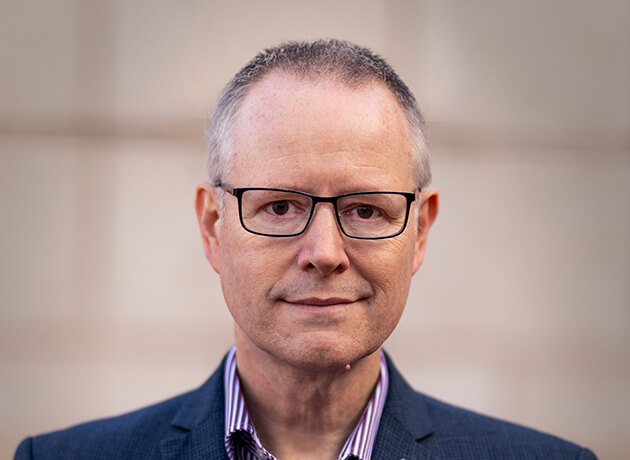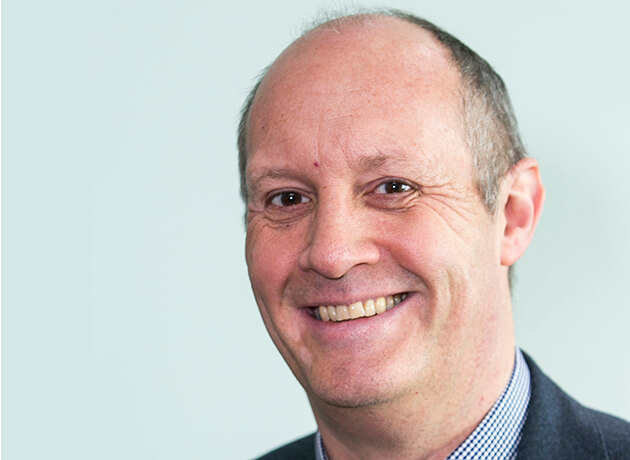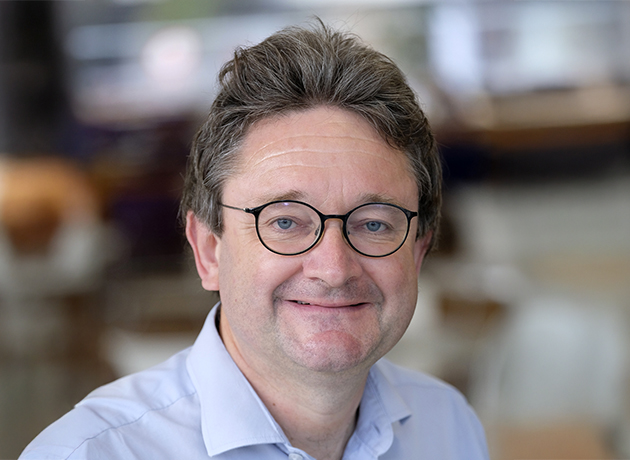Here you can find out more about what the Fellowship is, as well as hear from its members about the latest technologies which are underpinning our company and impacting our industry.
BT Group’s Tech Fellowship is a multi-level technology career development and recognition programme with a difference. It’s completely bespoke, for engineers run by engineers.
Members of the Tech Fellowship are BT colleagues who want to develop as tech specialists, keep their finger on the pulse of the latest technology, establish themselves as experts and make an impact in an ever-changing industry.
Encompassing four levels of involvement from ‘Member’ through to ‘Fellow’, progression is achieved via a peer-reviewed application process, during which candidates must demonstrate the necessary ability, ambition and ambassadorship to meet the criteria for the next level.


Fellow
The highest level of recognition, for industry-changing technology leaders who lead the technical community and create a halo effect for the programme.
Distinguished Engineer
Industry recognised technical leaders, driving technical change and sharing their knowledge with the community.
Accomplished Engineer
Engineers who have demonstrated technical accomplishment with the ambition and potential to become a technical leader.
Accomplished
Engineers
Distinguished
Engineers
Fellows
(correct as of 25 March 2025)
Andy Sutton
Principal Network Architect, Wireless Access, BT Group
BiographyAs a Principal Network Architect, Andy is focused on 4G/5G mobile access, fixed microwave radio systems, and satellite communications.
- Chartered Engineer
- Holds professional Fellowships from the IET, ITP and BCS.
- Visiting Professor at the University of Liverpool and University of Salford.
- Master’s degree in mobile communications.
I am absolutely delighted but also humbled to be appointed as a BT Fellow, given that initial nomination is based on input from one’s peers. This appointment is a tremendous honour and I’m excited to be a part of the evolving Tech Fellowship within BT. As a technical development community run by engineers for engineers, the Tech Fellowship is full of enthusiasm and a great place to learn, network and grow.
Close
Dave Harcourt
Chief Security Authority and Automation Director, BT Group
BiographyAs the Chief Security Authority and Automation Director, Dave is responsible for setting security direction across BT to keep both BT and our customers safe, and driving security automation in a mission to make security simple and easy to implement and manage.
- Fellow of the Chartered Institute of Information Security Professionals
- Member of the Institution of Engineering and Technology
- Masters degree in Electronic Systems Engineering
- Ambassador for the Global Cyber Alliance and a Director of StopScams UK
I'm really proud to have been recognised as one of the first BT Group Fellows. The work we do in security to keep our networks and customers safe is often less talked about, but super important to ensure we can all sleep a little more soundly at night. It's great that we're recognising the impact our technical leaders in security have through the Tech Fellowship.
Close
Maria Cuevas
Networks Research Director, BT Group
BiographyAs the Networks Research Director, Maria’s team’s mission is to identify and co-develop new technologies to enhance BT’s networks and services in terms of capacity, efficiency, coverage, security and customer experience
- Board Director in the Wireless Broadband Alliance, amongst a number of Industry Advisory Board roles across strategic projects and initiatives in the telecoms industry
- Fellow in the Institute of Telecoms Professionals (ITP) And Winner of the ‘Women in telecoms’ award in 2017 by the ITP
- Co-author of 32 live inventions which have so far generated 105 granted patents and 25 pending patents.
- Engineering and Masters degrees in Telecoms
- Masters degree in Business Strategy & Leadership
It is an absolute honour to have been nominated and recognised by my colleagues as a Fellow in BT. I take this as a great opportunity and a responsibility to be an ambassador for the telecoms industry and the positive impact that our sector has on the wider society. The Tech Fellowship is a growing, self-sustaining community within BT, by engineers for engineers, aiming to have an impact in and outside our business. We have made great progress in the last 2 years and I am committed to continue to support and help amplify our collective impact in my new role within this community.
Close
Andrew Lord
Senior Manager, Research, Optical Networks, BT Group
BiographyAndrew leads a research team covering all aspects of BT’s optical and quantum research.
- Chartered Engineer
- Fellow of the IEEE
- Optica Fellow
- Visiting Professor at Essex University
- Published 200 papers and 42 patents
- General Chair of Optical Fibre Communications Conference (OFC) in 2016 and was the Technical Program Chair of the European Conference on Optical Communications (ECOC) in 2023. Editor-in-Chief of the Journal of Optical Communications and Networking.
- Degree in Physics
I am frankly stunned to be elected to one of the first BT Fellows. Over my 38 years in the company, considering the many brilliant people with whom I’ve worked, I would never have believed this was possible and it’s a very humbling experience. It makes me even more determined to do the absolute best that I can, both for the Tech Fellowship and for the wider BT Group. The 2-year-old Fellowship has already had a significant impact within BT Networks, and I am particularly pleased with the support offered to aid people’s development aspirations, as well as the encouragement to get out there and play our part as industry thought leaders.
Close
Russell Davey
Principal Network Architect, Connectivity, BT Group
BiographyAs a Principal Network Architect, Russell is responsible for setting the technical direction of the inter-city optical fibre network which carries all BT’s services.
- Chartered Engineer
- Masters degree in Telecommunications Engineering
- PhD in Physics
- Fellow of the Institution of Engineering and Technology
- Co-founder of the Next Generation PON group within the Full Services Access Network world-wide industry association of network operators
Over my thirty-year career I have been privileged to learn from many experts in optical fibre network technology and apply that learning to help connect homes and cities across the BT network. I am flattered and proud to have been recognised as a BT Fellow by my colleagues. Through the brilliant Tech Fellowship initiative, I hope to continue learning, helping others to learn, and together apply that learning to help customers connect for good.
Close
Members and squads within BT’s Tech Fellowship often come together to produce technical whitepapers on key topics impacting the telecoms industry. The aim of these papers is to help to educate, inform and foster collaboration across the industry.


-
Use of U6 GHz band for mobile
Working with Nokia, we have conducted trials which confirm the coverage and capacity benefits that can be achieved by using the U6 GHz frequency band for mobile – offering comparable performance to today’s widely-used mid-band 3.5 GHz spectrum, with potential to deliver high-quality indoor and outdoor coverage. The trials also demonstrated the implications of possible shared use of the band between licensed mobile networks and licence-exempt Wi-Fi, as has been proposed for study by European regulators. Read our joint whitepaper for detailed results and conclusions.
09/07/2025 pdf - 1.01 MB


-
Telco cloud evolution - what really matters?
This whitepaper explores the evolution of telco cloud infrastructure, highlighting trends like hardware heterogeneity, cloud-native workloads, automation, edge computing, and energy efficiency. Its emphasis is on modular, scalable, and secure architectures tailored for telecom needs, with a focus on performance, sustainability, and operational agility across central and edge deployments.
25/06/2025 pdf - 16.76 MB


-
Towards a More Energy Efficient Future Telecoms Network
Improving energy efficiency is increasingly important to the cost-effective operation of telecommunication networks and provides societal benefit from moderating energy demand. Dynamically matching network power consumption to active traffic load is one technique that provides a significant opportunity to improve efficiency by moving away from the typically constant power consumption of many of today’s networks.
31/10/2024 pdf - 13.27 MB

